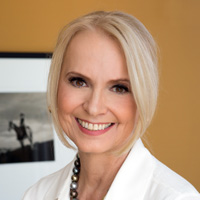The 5 Things People Ask Potential Advisers and Why They Are Wrong
Finding the right financial planner takes more thought than asking the same old questions. Here's where people are going wrong, and what they should ask instead.


Profit and prosper with the best of Kiplinger's advice on investing, taxes, retirement, personal finance and much more. Delivered daily. Enter your email in the box and click Sign Me Up.
You are now subscribed
Your newsletter sign-up was successful
Want to add more newsletters?

Delivered daily
Kiplinger Today
Profit and prosper with the best of Kiplinger's advice on investing, taxes, retirement, personal finance and much more delivered daily. Smart money moves start here.

Sent five days a week
Kiplinger A Step Ahead
Get practical help to make better financial decisions in your everyday life, from spending to savings on top deals.

Delivered daily
Kiplinger Closing Bell
Get today's biggest financial and investing headlines delivered to your inbox every day the U.S. stock market is open.

Sent twice a week
Kiplinger Adviser Intel
Financial pros across the country share best practices and fresh tactics to preserve and grow your wealth.

Delivered weekly
Kiplinger Tax Tips
Trim your federal and state tax bills with practical tax-planning and tax-cutting strategies.

Sent twice a week
Kiplinger Retirement Tips
Your twice-a-week guide to planning and enjoying a financially secure and richly rewarding retirement

Sent bimonthly.
Kiplinger Adviser Angle
Insights for advisers, wealth managers and other financial professionals.

Sent twice a week
Kiplinger Investing Weekly
Your twice-a-week roundup of promising stocks, funds, companies and industries you should consider, ones you should avoid, and why.

Sent weekly for six weeks
Kiplinger Invest for Retirement
Your step-by-step six-part series on how to invest for retirement, from devising a successful strategy to exactly which investments to choose.
We recently had a prospective client ask us to send out our Form ADV Part 2. That was their only question. This SEC filing is essentially a marketing brochure that duplicates information on our website. We sent it, of course, but we’re certain it didn’t really tell much about what we do and how it would — or would not — match this person’s needs.
We suspect that someone did an Internet search on “what to ask a financial adviser” and decided to ask for it based on that.
A search like this points out a big problem: Everyone’s reading the same information. People tend to stop at whatever comes up first, with the result being that everyone is following the same checklist for finding a financial adviser.
From just $107.88 $24.99 for Kiplinger Personal Finance
Become a smarter, better informed investor. Subscribe from just $107.88 $24.99, plus get up to 4 Special Issues

Sign up for Kiplinger’s Free Newsletters
Profit and prosper with the best of expert advice on investing, taxes, retirement, personal finance and more - straight to your e-mail.
Profit and prosper with the best of expert advice - straight to your e-mail.
Unfortunately, this approach doesn’t necessarily give you the information that you need to make the best decision.
We’re familiar with these Internet checklists, because so many of our prospective clients use them. Here are five common questions, but the answers don’t tell you what you need to know about planning for your financial future.
No. 1: What is your performance track record?
Aside from the fact that past performance does not indicate future results, performance is very much tied to the choices that planners and clients make together. A good financial adviser should help you determine your goals and how you will get there.
This question also conveys a sense that the client is attempting to beat the market, rather than focus on his or her unique situation, and need to generate retirement income. We understand that nobody wants to hire a so-called adviser who gambles with clients’ money, but the way to ferret out a lack of philosophy is to learn whether the adviser takes a scientific approach using evidence-based investing, versus simply guessing which stocks or funds may outperform other securities.
What you should ask instead: A better question would be to ask about the planner’s investment philosophy and approach to building financial plans.
No. 2: How many clients do you have?
This question tells you something about an adviser’s practice, but what? And how does that fit with what you need? Does an adviser have only a handful of clients because all the other clients left, or because the practice has a very narrow specialty? Does an adviser with a lot of clients offer better advice or take a cookie-cutter approach because there are just too many people to serve effectively?
What you should ask instead:
- What types of clients do you work with?
- How long does it take to get an appointment?
- What is your meeting process?
- What are reasons that people leave your practice?
No. 3: What services do you provide?
The answer to this question should match the services you need (or think you do). An adviser who works with high-net-worth families, manages 401(k) plans or sells insurance, may not be the best person to help you with a retirement cash flow management plan. Watch out for small practices that seem to offer everything, as they may not have depth of expertise in any of those areas. I see practices that list 30 areas of expertise, many of which require different skills and knowledge.
What you should ask instead: Ask a potential adviser to walk you through their process for clients, especially what will happen in the first meeting and the first year. Then, follow that up by asking what network of support do you have to provide all the services that I need? It’s likely that no one person you’re working with can help you with everything from a budget to investing to retirement withdrawals and estate planning. So, it’s important that the person you’re working with has access to a backup team, if necessary. See what kinds of experts are available to work on your behalf.
No. 4: What credentials have you earned?
The various credentials in the financial services industry require time and study to earn. They do matter, but they don’t tell the entire story.
The Certified Financial Planner designation is increasingly common in the industry, and many firms have at least one CFP on staff. However, use caution when assuming all CFPs are experts in every financial situation. Not all those who hold a CFP have comprehensive planning experience. Some work as insurance agents, stockbrokers or even journalists — not with people like you.
Others in the industry have lots and lots of credentials, but that could be because they like taking classes more than doing the work of an adviser. You should look for credentials, but experience to help you meet your needs is more important than a string of letters after someone’s name.
What you should ask instead: What experience do you have in helping investors like me, and how long have you been giving advice to clients with my needs?
No. 5: Are you a fiduciary?
This is a loaded question. Many advisers have both fiduciary and non-fiduciary roles, depending on the situation. The Securities Exchange Commission says that anyone who collects a commission is not a fiduciary; however, some advisers use commission-based products with some clients but not others, depending on the situation. At our firm we’ve run across several of these hybrid advisers who tout only the fiduciary role, which can mislead clients.
What you should ask instead: All advisers receive some form of compensation for their services, so a better question to ask is how the adviser is compensated. If you know that upfront, you will have a better sense of whether the advice you receive matches the price you pay.
The financial services industry is better off when clients ask good questions. We want to help you or refer you to someone who can better meet your needs. One way is for you to understand what you are asking and how it ties to what you need to know. This is a far better approach than using a standardized Internet checklist.
Profit and prosper with the best of Kiplinger's advice on investing, taxes, retirement, personal finance and much more. Delivered daily. Enter your email in the box and click Sign Me Up.

I'm the CEO of Better Money Decisions (B$D) and co-author of the blog Better Financial Decisions. As a principal of B$D, I'm excited to continue my long career as an investment professional. Living and working in places as diverse as Saudi Arabia and Budapest, Hungary, has given me a unique perspective on the world of investing. My book, "Bozos, Monsters and Whiz-Bangs: Bad Advice from Financial Advisors and How to Avoid It!" is an insider's guide to finding the right adviser.
-
 5 Vince Lombardi Quotes Retirees Should Live By
5 Vince Lombardi Quotes Retirees Should Live ByThe iconic football coach's philosophy can help retirees win at the game of life.
-
 The $200,000 Olympic 'Pension' is a Retirement Game-Changer for Team USA
The $200,000 Olympic 'Pension' is a Retirement Game-Changer for Team USAThe donation by financier Ross Stevens is meant to be a "retirement program" for Team USA Olympic and Paralympic athletes.
-
 10 Cheapest Places to Live in Colorado
10 Cheapest Places to Live in ColoradoProperty Tax Looking for a cozy cabin near the slopes? These Colorado counties combine reasonable house prices with the state's lowest property tax bills.
-
 Don't Bury Your Kids in Taxes: How to Position Your Investments to Help Create More Wealth for Them
Don't Bury Your Kids in Taxes: How to Position Your Investments to Help Create More Wealth for ThemTo minimize your heirs' tax burden, focus on aligning your investment account types and assets with your estate plan, and pay attention to the impact of RMDs.
-
 Are You 'Too Old' to Benefit From an Annuity?
Are You 'Too Old' to Benefit From an Annuity?Probably not, even if you're in your 70s or 80s, but it depends on your circumstances and the kind of annuity you're considering.
-
 In Your 50s and Seeing Retirement in the Distance? What You Do Now Can Make a Significant Impact
In Your 50s and Seeing Retirement in the Distance? What You Do Now Can Make a Significant ImpactThis is the perfect time to assess whether your retirement planning is on track and determine what steps you need to take if it's not.
-
 Your Retirement Isn't Set in Stone, But It Can Be a Work of Art
Your Retirement Isn't Set in Stone, But It Can Be a Work of ArtSetting and forgetting your retirement plan will make it hard to cope with life's challenges. Instead, consider redrawing and refining your plan as you go.
-
 The Bear Market Protocol: 3 Strategies to Consider in a Down Market
The Bear Market Protocol: 3 Strategies to Consider in a Down MarketThe Bear Market Protocol: 3 Strategies for a Down Market From buying the dip to strategic Roth conversions, there are several ways to use a bear market to your advantage — once you get over the fear factor.
-
 For the 2% Club, the Guardrails Approach and the 4% Rule Do Not Work: Here's What Works Instead
For the 2% Club, the Guardrails Approach and the 4% Rule Do Not Work: Here's What Works InsteadFor retirees with a pension, traditional withdrawal rules could be too restrictive. You need a tailored income plan that is much more flexible and realistic.
-
 Retiring Next Year? Now Is the Time to Start Designing What Your Retirement Will Look Like
Retiring Next Year? Now Is the Time to Start Designing What Your Retirement Will Look LikeThis is when you should be shifting your focus from growing your portfolio to designing an income and tax strategy that aligns your resources with your purpose.
-
 I'm a Financial Planner: This Layered Approach for Your Retirement Money Can Help Lower Your Stress
I'm a Financial Planner: This Layered Approach for Your Retirement Money Can Help Lower Your StressTo be confident about retirement, consider building a safety net by dividing assets into distinct layers and establishing a regular review process. Here's how.